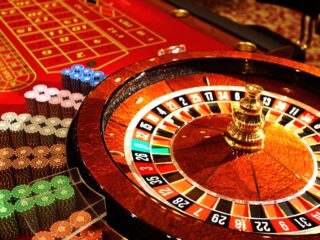
Hearing is a marvelous gift, one that enables us to connect with the world in profound ways. From the soothing whispers of nature to the rich cadence of our favorite songs, sound colors our experiences in immeasurable ways. As with all precious things, our hearing deserves protection and care. To ensure that your ears stay in prime condition, follow this step-by-step guide to bolster your hearing health.
Begin With Awareness: Know The Risks
Before diving into protection strategies, it’s crucial to understand the potential risks that can impact your hearing health. Several factors, from environmental noise to certain medications, can contribute to hearing loss. Hence, the first step is always to be aware. If you ever find yourself straining to hear or experiencing ringing in your ears after exposure to loud noises, it might be time for a professional evaluation. Conveniently located services, such as hearing tests Marrickville, can offer comprehensive assessments to gauge your hearing health.
Limit Exposure to Loud Noises
1. Understand Decibels:
Sounds louder than 85 decibels (roughly the noise level of heavy city traffic) can cause damage if you’re exposed to them for long durations. Familiarize yourself with decibel levels to make informed choices.
2. Use Earplugs:
When attending concerts, working with noisy machinery, or finding yourself in loud environments, consider wearing earplugs. They reduce sound intensity, safeguarding your ears.
3. Take Breaks:
If you’re in a loud setting, take periodic breaks. This gives your ears a chance to recover.
Invest in Quality Headphones
1. Noise-Canceling:
These headphones reduce the need to increase volume in noisy settings, as they block out external sounds.
2. Over-the-Ear vs. In-Ear:
Over-the-ear headphones are generally considered safer than earbuds, as they sit away from the eardrum.
3. Adhere to the 60/60 Rule:
Listen at 60% of the maximum volume for no more than 60 minutes at a stretch.
Regularly Clean Your Ears
1. Avoid Cotton Swabs:
While they may seem like the right tool, cotton swabs can push wax further into the ear canal, causing blockages.
2. Use Ear Drops:
If you suspect a wax buildup, ear drops can soften the wax, making it easier to remove.
3. Consult a Professional:
If you’re unsure about wax buildup or how to clean your ears, seek advice from an audiologist or ENT specialist.
Stay Active And Healthy
1. Cardio Exercises:
Exercises like walking, running, or cycling can improve blood flow to the ears, promoting better hearing.
2. Maintain a Balanced Diet:
Nutrients like omega-3 fatty acids, found in fish, and antioxidants, found in an array of fruits and vegetables, can potentially lower the risk of age-related hearing loss.
3. Avoid Smoking:
Smoking can reduce blood flow to the ears, increasing the risk of hearing damage.
Protect Ears in Specific Environments
1. At Work:
If your job exposes you to loud noises (e.g., construction or aviation), ensure you’re wearing appropriate ear protection.
2. During Recreational Activities:
Activities like shooting or attending motorsport events can expose you to sudden loud noises. Always have ear protection handy.
3. While Traveling:
Airplane cabins, particularly during takeoff and landing, can have pressure changes affecting your ears. Swallowing, yawning, or using specialized earplugs can help.
Get Regular Hearing Check-ups
Just as you’d get your eyes tested or go for a routine dental check-up, your ears deserve the same attention.
1. Frequency:
For adults, an evaluation every two to three years should suffice. If you’re over 50, consider an annual check-up due to the increased risk of age-related hearing loss.
2. After Loud Exposure:
If you’ve been to a loud event and your hearing feels muffled or you experience ringing, get it checked.
3. Stay Updated:
Audiological advancements are continuous. A regular check-up ensures you’re benefiting from the latest knowledge and techniques.
Educate And Advocate
Share knowledge about hearing protection with friends and family. Advocate for quieter environments, and if needed, don’t hesitate to request volume reductions in loud settings, like restaurants or cinemas.
Listen to Your Ears
Your ears can tell you a lot. If they feel strained, give them a break. If something doesn’t sound right, seek professional guidance.

Remember, preserving your hearing health is not just about protecting the ears but nurturing the myriad beautiful sounds that enrich our lives.











